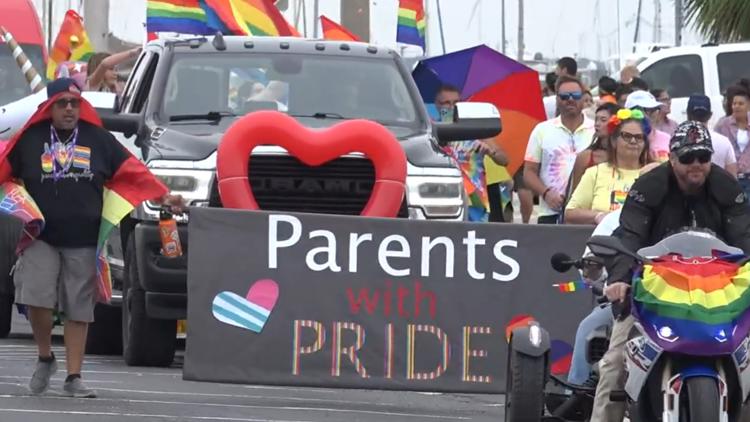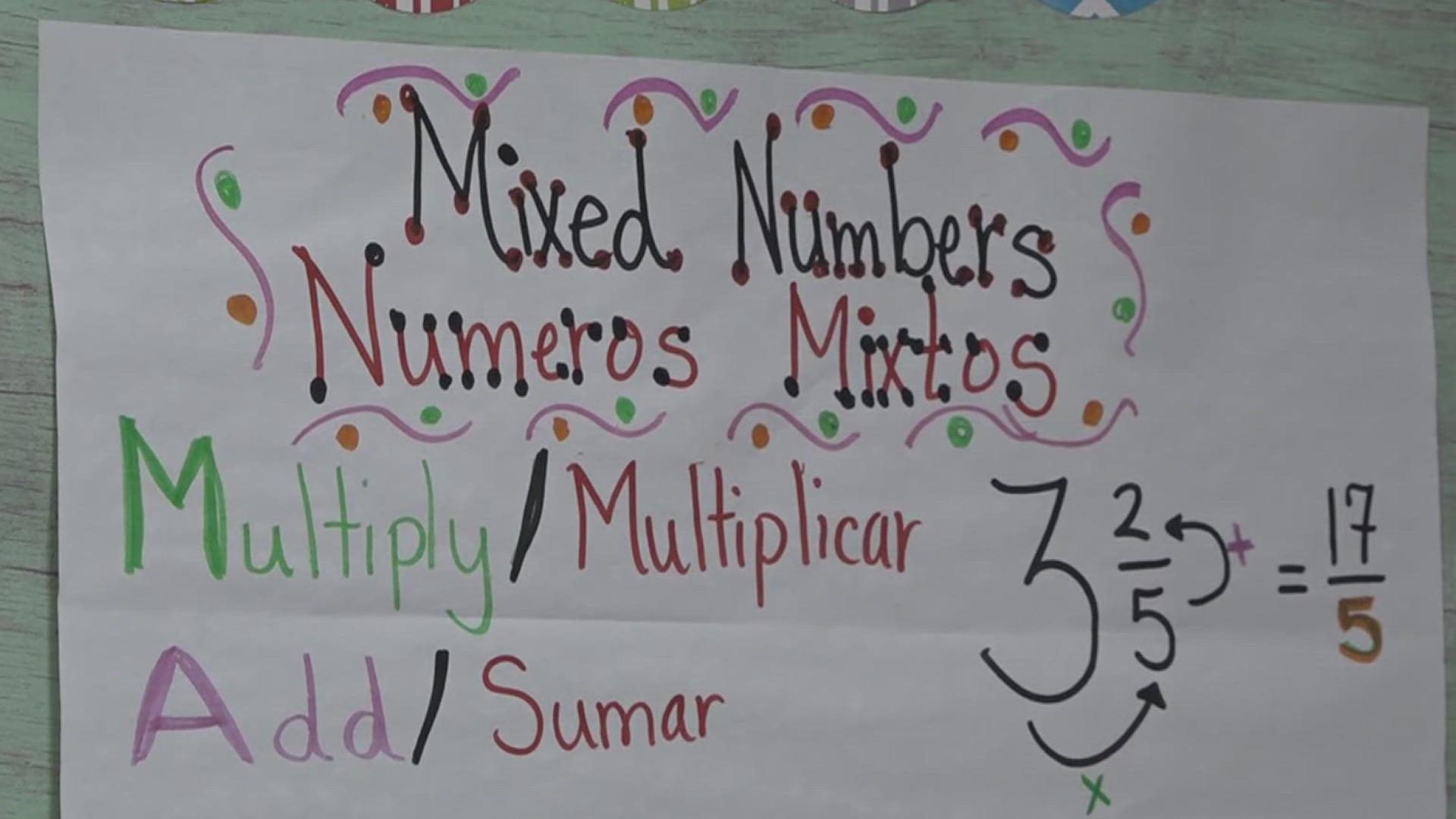CORPUS CHRISTI, Texas — When Script Journey Marketing and Writing Consultants owner Michael Quintana started his masters degree in San Jose, California, he felt like a fish out of water.
He was starting his first day of school with classmates much older than him in a town thousands of miles away from home, and he was gay. As other students started to pick their seats at the large table in the classroom, he worried there was not a place for him. He wondered if his classmates would accept him for who he was.
Then, he saw a Pride flag pin on one girl's backpack.
"I knew that if I just sat next to her, I would be okay," he said. "And that’s, that’s the power of an ally; that outwards representation of, 'I'm a lighthouse for you.' "
If you don't identify as part of the LGBTQIA+ community, you may think that Pride Month doesn't apply to you -- that you can stroll past the rainbow flags.
However, members of the community said allies are vital to the community, even if they are straight and cisgender (identify with sex assigned at birth).
Love thy neighbor
Quintana said allyship can be simple -- all it requires is acceptance.
"For a lot of individuals getting to a place of acceptance, even within themselves, is such a feat," he said. But the greatest part, and the greatest energy, that an ally can do is stand up for you in rooms that you’re not present in."
House of Dragons star Matt Smith recently was praised for the way in which he subtly corrected an interviewer who misgendered nonbinary co-star Emma D'Arcy, who uses they/them pronouns.
When LGBTQ+ Sky TV podcast host Sue Perkins said “she gave you all the credit” for how good the first season's final scene was, he responded with “I can’t take the credit, [but] I have to say, aren’t they brilliant?”
When 3NEWS spoke with All Saints’ Episcopal rector and ally Rev. Jonathan Wickham, he was wearing a pin that had a Pride flag rainbow inside an ichthys, the fish symbol used by many Christians.
He said, for him, allyship goes hand-in-hand with his Christian religion, especially in the teaching of “loving thy neighbor.”
“One of the best ways that we can understand if we’re being an ally for another human being is if we are seeking their best; not our best,” he said. “So if our neighbor is gay, then we seek their best for them. We help them find that, and we will pray for them. We seek their best, that’s what love is.”
According to Wickham, it is not enough to just be accepting of non-heterosexual relationships or non-traditional gender ideation. Action is an important part of being an ally
“If there’s one thing people of good conscience, who otherwise might be supportive of LGBTQ+ community have been guilty of, is passivity, and that passivity might be well reasoned, but it’s time for that to stop. It's time for us to be vocal and to show up.”
Allyship is love
For those who are ready for the next step in being a strong ally for the LGBTQIA+ community, Unitarian Universalist Seminarian Eli Poore said allies can offer their voice to support members when they are unable to represent themselves.
“I am a member of the LGBTQIA community, and allyship means both love and support to me," he said. "So it means someone having conversations that I may not be comfortable having, someone stepping in and speaking for me and I may be too upset to speak for myself, or stepping in for someone else."
Quintana provided an example of what a conversation from an ally could look like.
"When somebody speaks bad about your gender identity, or your sexuality, or who you are as a literal human being, to just show up and be like, 'Hey that person is incredible. I know them personally, and I know members from that community and they are not what you’re saying they are. But, if you want to take a second to sit down with me, I will explain it further. And it doesn’t need to be right now, we don’t have to stop the party, but maybe at a later time, maybe we don’t have that comment made here in this space where I’m at,' " he said.
Other ways you can support the LGBTQ+ community is supporting their businesses, loving LGBTQIA+ youth and attending Pride events.
Poole said a lot of hate toward the LGBTQIA+ community comes from keyboard warriors -- people who are content to throw stones from afar -- and that sometimes it's helpful to borrow strength or courage from allies when bullies have depleted an LGBTQIA+ person's.
"We all have family members, we all have friends, we all have people we love," they said. "There’s not a single person, probably, in the community that doesn’t have a friend or a family member that is to us LGBTQIA or knows someone and it's personal. We are people with faces. It's easy to hide behind a keyboard. It's easy to dehumanize. But the people that are allies -- when we stand up and speak up, that’s what makes a difference."
Digital Director Ana Tamez contributed to this story.



